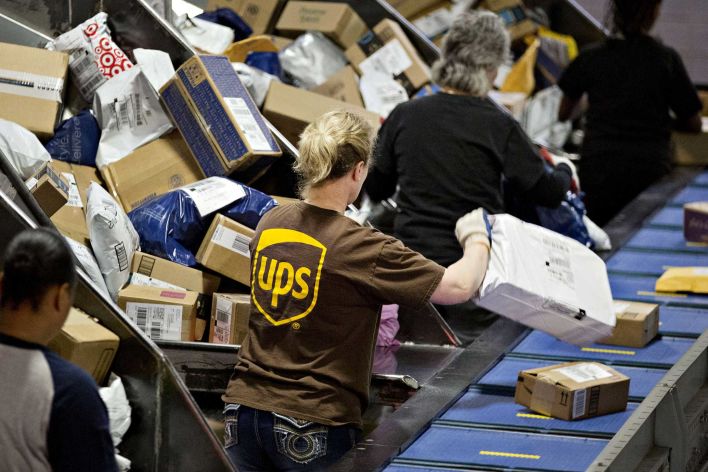
With a drawn-out shopping season and more people ringing up purchases online, the number of packages being returned is actually starting to spike ahead of Christmas, not after it.
For the first time ever, UPS has forecast the busiest day for returns will be Wednesday. Typically, the busiest day for returns falls on Jan. 3, after people have opened their gifts and made it through any New Year’s Eve celebrations. But the Atlanta-based carrier says it expects a record 1.5 million packages to be returned Dec. 19, compared with 1.3 million expected on Jan. 3, 2019.
UPS attributed the shift to more consumers buying gifts for themselves this year, encouraged by the good deals online earlier in the holiday season, and to companies making the returns process easier.
Walmart, for example, earlier this year announced changes to its online marketplace to make it easier for shoppers to return purchases by giving them quicker access to shipping labels and return policies. And Amazon has forged a partnership with Kohl’s, where Amazon returns are now being accepted at kiosks at certain Kohl’s stores.
Even apparel subscription service Rent the Runway is trying to make it easier for customers to return clothes by opening drop boxes within some of WeWork’s co-working spaces.
“There are a lot of these rental services now … and we have a lot of parties going on during the holidays,” Kathleen Marran, vice president of U.S. marketing for UPS, told CNBC, adding another reason for returns to be spiking in December. “People are deciding what they want to keep or don’t want to keep earlier this year.”
Americans alone returned more than $90 billion of goods during the 2017 holiday season, according to Optoro, a tech firm that processes more than $1 billion worth of returns each year from companies like Best Buy and Home Depot. Optoro said it expects that amount to rise each year, as e-commerce sales continue to climb. (Shoppers are more likely to return an online purchase than one they made in a store.) It’s estimated about $380 billion in merchandise is returned to retailers, annually, and growing.
Importantly for retailers to take note of, nearly 90 percent of consumers say they’re less likely to buy from a retailer or brand if they have a poor experience with a return, Optoro found in surveying 600 people. Fifty-five percent of people say they’ve outright chosen not to buy something because a return policy wasn’t flexible enough.
Now, with more companies — including Walmart and Amazon — this holiday season offering shoppers the option to buy online and still have items arrive by Dec. 25, carriers UPS, FedEx and the U.S. Postal Service are expecting record activity coming in and out of their centers. In addition to deliveries, they’ll be juggling a surge in returns.
“As long as there is a label on the package, so we know where it starts and ends, it’s really simple for us,” Marran said about UPS handling so many returns. “It’s not as complicated [for carriers] as people may think it is.”